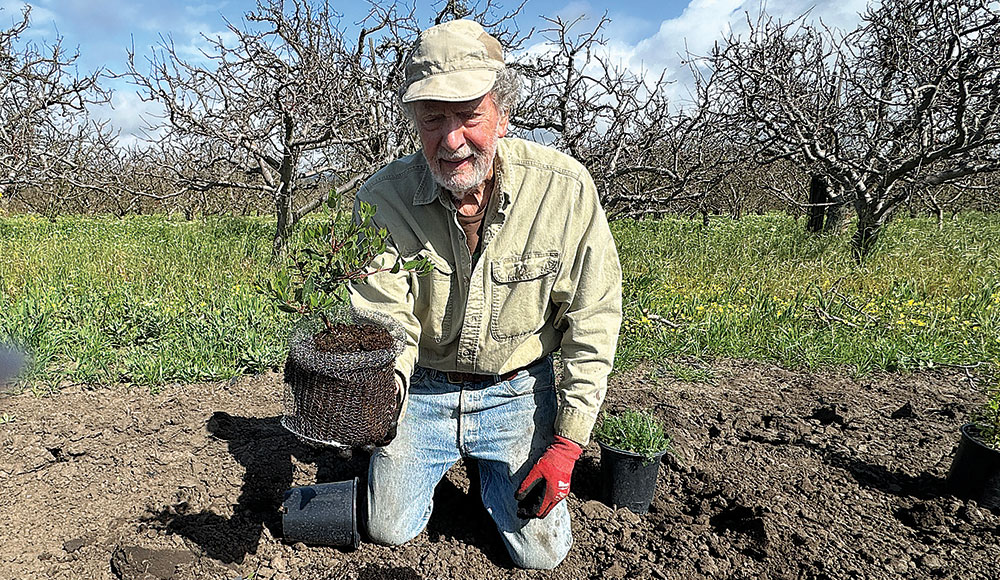A local farm is being modified to serve as a learning center for young students about progressive farming methods.
Headed up by local farmer Sam Earnshaw, a crew of workers recently spread out across the seven-acre Hikari Farm on Freedom Boulevard, where organic Fuji apples grow.
Started back in the 1970s, the farm—which has fallen into disrepair—is now getting brought up to speed with modern farming techniques. This includes regenerative methods and new hedgerows that attract pollinating insects and provide habitat and food for beneficial birds.
Another goal is to invite school children to the farm to learn about how regenerative agriculture incorporates nature without the need for chemicals.
“We’re bringing habitat and biodiversity to the farm,” Earnshaw says. “Nature provides the correct habitat without the need for pesticides and fumigation. In England they were planting hedgerows in the Bronze Age.”
Nick Filannino, one of the workers helping out, said the farm received a call from Wild Farm Alliance about helping Hikari Farm.
“The owner wanted to rehabilitate the land and create a community center for growing traditional Japanese vegetables, as well as providing farm fresh organic apples and produce for local schools,” Filannino said. “So we said okay. And we started looking at possibilities on how to integrate nature into this farm.”
Filannino then worked on getting some grants to help pay for the project.
Hedgerows are rows of trees and shrubs planted with crops as protective barriers.
According to Wild Farm Alliance, hedgerows also provide habitat for butterflies and moths, as well as habitat and food for beneficial birds.
Sacha Lozano of Resource Conservation District said he has worked with Earnshaw on several hedgerow projects.
“If you take care of these rows—once they get established—they will take care of themselves and provide great benefits for the farms,” he said. “They are drought tolerant, will flower at different times of the year, attract birds, and promote pollination.”














